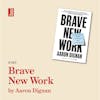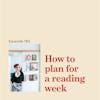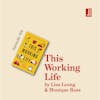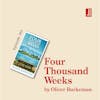Tools of Titans by Tim Ferriss: how to make your habits your key for success
About the Book
Tim has interviewed more than 200 world-class performers for his podcast, The Tim Ferriss Show. The guests range from super celebs (Jamie Foxx, Arnold Schwarzenegger, etc.) and athletes (icons of powerlifting, gymnastics, surfing, etc.) to legendary Special Operations commanders and black-market biochemists. For most of my guests, it’s the first time they’ve agreed to a two-to-three-hour interview. This unusual depth has helped make The Tim Ferriss Show the first business/interview podcast to pass 100 million downloads.
This book contains the distilled tools, tactics, and ‘inside baseball’ you won’t find anywhere else. It also includes new tips from past guests, and life lessons from new ‘guests’ you haven’t met.
Tim said “I created this book, my ultimate notebook of high-leverage tools, for myself. It’s changed my life, and I hope the same for you.”
Source: Amazon.com
About the Author
Tim Ferriss has been listed as one of Fast Company’s “Most Innovative Business People” and one of Fortune’s “40 under 40.” He is an early-stage technology investor/advisor (Uber, Facebook, Shopify, Duolingo, Alibaba, and 50+ others) and the author of five #1 New York Times and Wall Street Journal bestsellers, including The 4-Hour Workweek and Tools of Titans.
The Observer and other media have called Tim “the Oprah of audio” due to the influence of The Tim Ferriss Show podcast.
Source: https://toolsoftitans.com/
Buy the book from The Book Depository - https://www.bookdepository.com/Tools-Titans-Timothy-Ferriss/9781785041273/?a_aid=stephsbookshelf
Would you like to take better notes from the books you read? Get your copy of Archley's beautiful book journal, the Book of Books here: https://www.archleys.com/?ref=JamVyS-U4mVR
BIG IDEA 1 (6:50) – Success comes from beliefs and habits.
Tim summarises the ideas in the book by saying that success comes from beliefs and habits applied consistently. And it’s not always the big things, for example, over 80% of the interviewees have some kind of meditation or mindfulness practice.
One of the questions he asked almost everyone was ‘how do you define success?’. It’s interesting to see the different perspectives of people about what success means to them, and what beliefs and habits they contribute their relative success to.
Tim also mentioned in the book that you should look at people who have done things like you want to, not necessarily exactly like you want to. If you want to conquer Mars, don’t go and look for someone who conquered Mars but look for someone who conquered an industry or even a country. You can borrow from this ‘collective DNA’, without needing the other person to have done exactly what you want to do.
BIG IDEA 2 (9:10) – Maximise your strengths.
Tim says that everyone struggles and practically everyone is a mess (at least at a point in time). But people don’t succeed because they have zero weaknesses. They found one or two strengths and developed habits around them to maximise them.
They brought those strengths to life and used them to their advantage. For some people this was a physical strength (particularly athletes) whereas for others it could be their ability to focus or apply themselves to a particular field.
This is only possible with self-awareness. You can only use your strengths by working out what they are before using them to the advantage of yourself, your company or your team, whatever it happens to be.
BIG IDEA 3 (11:07) – Learn from others.
This is the fundamental reason why the book exists – to learn from others. Most of the people Tim interviewed in the book mentioned the mentors, peers or other people they have learned from. They’ve either lived with them, worked with them, collaborated with them or indirectly learnt from them through their books, writings or podcasts.
The question that Tim often asks at the end of the interviews is ‘which book have you gifted the most?’. There’s a whole section at the end of the book dedicated to all their answers.
It goes to show that success is not a solo pursuit. None of these people achieved what they have achieved alone. They all have other people around them. Many of them talked about people from other fields who are at the top of their game. Who they can learn successful habits, mindset and behaviours from.
When you find these good people to learn from, ask new and different questions. And questions that will help you understand what makes them successful – not just what the ‘answer is’.
Support my book habit: https://www.buymeacoffee.com/stephsbookshelf
See omnystudio.com/listener for privacy information.
Hey, have you subscribed to the bookmark newsletter? If you liked this, you might like my twice-monthly email with book reviews and ideas of what you should be reading, and listening to, next. Click here to subscribe.
Popular episodes
Here are some great episodes to start with.

















